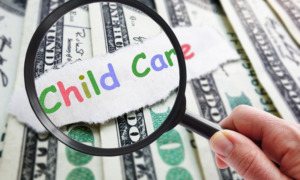Center for Juvenile Justice Reform, Georgetown Public Policy Institute
Youths who go through both the child welfare and juvenile justice systems often leave school without the skills necessary for success in the 21st century. This report from the Center for Juvenile Justice Reform urges working across child welfare and juvenile justice systems to improve services to meet the educational needs of these youths.
The authors note that many of these youths carry numerous risk factors (such as child abuse, poverty, emotional and behavioral disorders, and learning disabilities) that are associated with poor academic achievement, delinquency, substance abuse and mental health problems.
They identify principles to drive education reform, beginning with a sound early education and continuing with high-quality educational opportunities in both the child welfare and juvenile justice systems – efforts for which interagency collaboration is vital. The report explores education and other outcomes of youth in juvenile justice and child welfare, barriers to improving academic performance, recent legal and policy reforms, evidence-based interventions, emerging options and alternatives, and how to put the proposed principles into practice.
Free, 74 pages. http://cjjr.georgetown.edu/pdfs/ed/edpaper.pdf.





























